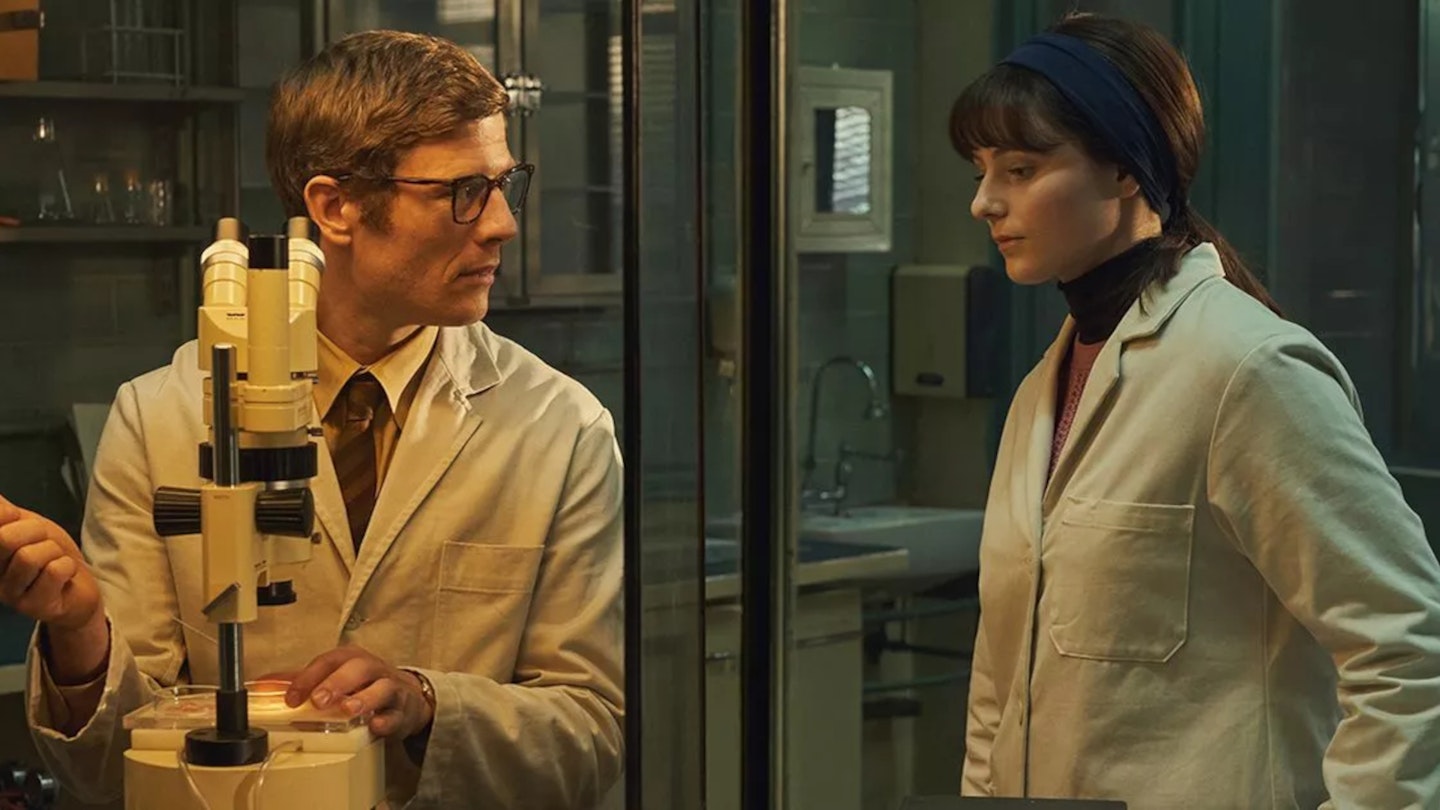Standing on the shoulders of Oscar-bothering British boffin dramas such as The Theory of Everything and The Imitation Game, Ben Taylor's (Sex Education) big-screen debut is a gentle proposition that would fit snugly into the Christmas TV schedules. It follows young nurse/embryologist Jean (Thomasin McKenzie), scientist Dr Robert Edwards (James Norton), known as Bob, and obstetrician Patrick Steptoe (Bill Nighy) from 1968-1978 as they create the first “test-tube baby” through painstaking — and often painful — trial and error.

While the script serves up a few clunkers — “You truly are impossible, aren’t you?” Jean tells Bob with an indulgent smile; “We’re making the impossible possible!” he marvels — it always has the ring of emotional truth about it. Screenwriter Jack Thorne (Enola Holmes) and his wife Rachel Mason, who developed the story with Emma Gordon and Shaun Topp, went through IVF themselves, so they know how brutal even a sliver of hope can be when you’re desperate to conceive.
By the latter stages, when the team zero in on one lucky couple, it’s impossible not to be swept along with their story.
In the early stages, particularly the scenes with Jean’s god-fearing mother (Joanna Scanlan) and friend-zone lover (Rish Shah), the film’s dutiful air threatens to turn dull. But Taylor and team work hard to keep things moving, with snappy cinematography and a sunny vintage soundtrack. Historically, Purdy’s contribution has been ignored, yet she’s front and centre here, played with fortitude and a flawless British accent by New Zealand-born McKenzie. Nighy brings his usual, bone-dry dignity. And Norton goes for affable eccentricity, but sometimes edges closer to 1970s sitcom character.
Though tactfully dealt with, we’re never allowed to forget the pain behind every failure. Purdy takes a special interest in the expectant mothers, who she dubs the Ovum Club, perhaps because she is unable to have children herself. As Trisha, one of the less fortunate members, Charlie Murphy is especially affecting. And that’s the key to the film’s success: its heart is firmly in the right place. By the latter stages, when the team zero in on one lucky couple, it’s impossible not to be swept along with their story.
As Jean tells the rest of the Ovum Club, whose silent sacrifices have never really been acknowledged before, “We know it, we see it, and we’re grateful.” By the end of this happy-sad historical corrective, you will be too.
